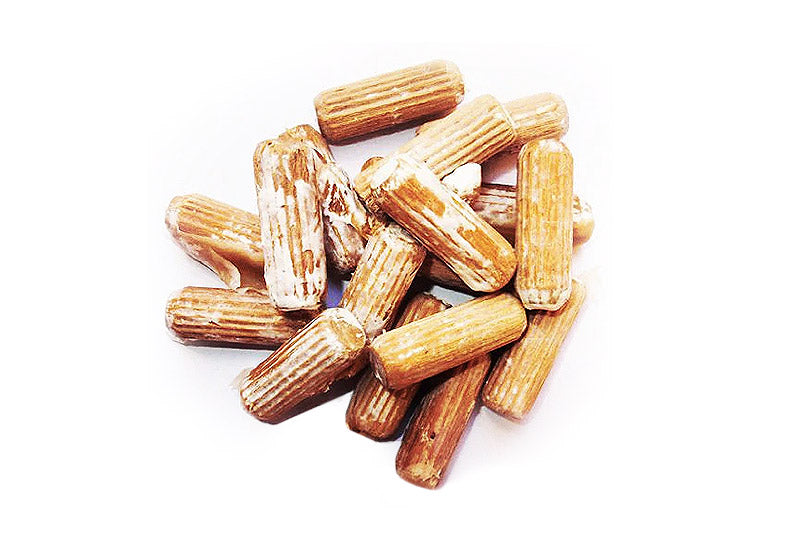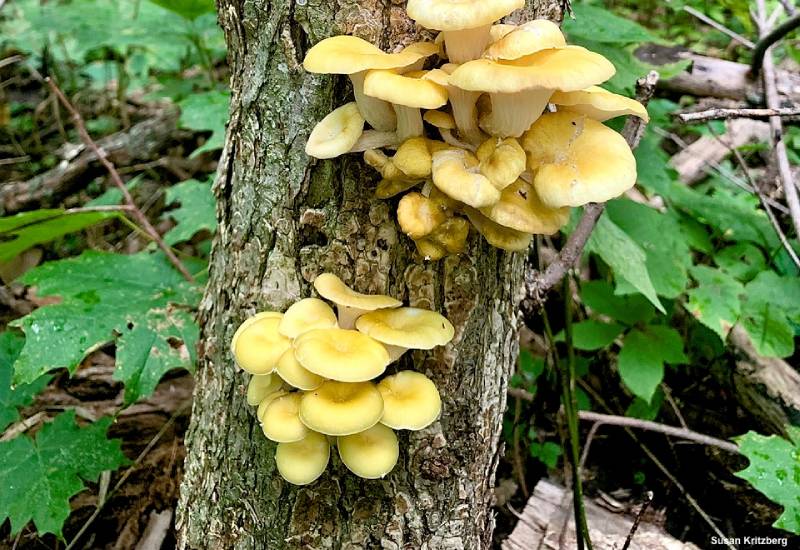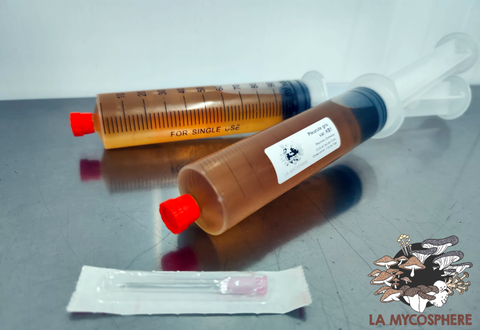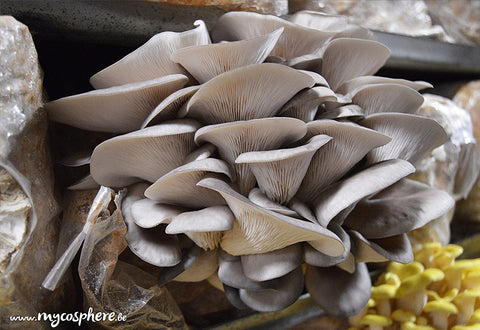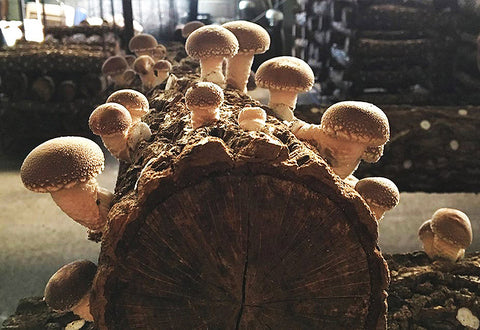Yellow Oyster Mushroom - Mycelium on organic wood dowels
- 🍄 MYCELIUM ON DOWELS - YELLOW OYSTER MUSHROOMS: Pleurotus citrinopileatus, ideal for cultivation on freshly cut hardwood.
- 🌱 EASY CULTIVATION: Simplified inoculation with dowels, requiring only a drill and a suitable wood bit.
- 🍽️ NUTRITIONAL RICHNESS: Yellow oyster mushrooms are rich in proteins, vitamins, and minerals, adding nutritional value to your meals.
- 🌍 ORGANIC PRODUCTION: Certified "BE-BIO-01", grown without pesticides or GMOs, environmentally friendly.
- 📏 PRACTICAL DETAILS: 50 dowels per log of 100cm x 20cm. Storage of dowels before use: about 3 months in the refrigerator.
-
2-3 weeks. If we have it in stock we send it within the week. Consult all our deadlines
Pleurotus citrinopileatus
The yellow oyster mushroom is a tropical variety that naturally fruits when temperatures reach 18 to 25°. It withstands light frosts without problems.
For more information, we recommend reading our guide: "Log Cultivation"
How to inoculate logs with mycelium on wooden dowels?
Our quality commitment:
We produce our myceliums under laboratory conditions, which guarantees purity of strains and optimal quality.
We produce our myceliums in a 100% organic way and all our products are certified "BE-BIO-01, Agriculture Belgium" by CERTISYS.

Necessary equipment
- Log or recently cut block of wood (max 3 months). Avoid resinous woods. Most hardwoods are suitable. Contact us if you want more specific information. Log diameter: between 10 and 25 cm. Length: between 50 and 150 cm.
- Mycelium on dowels: For a length of 1 m, multiply the diameter of a log by 2.5. Example: a log 1 m long and 20 cm wide requires 20 x 2.5 = 50 dowels.
- Drill and 8-9 mm bit
- Hammer
- Optional : vegetable wax, beeswax, paraffin, or green clay to cover the holes.

Instructions
* Wash your hands before touching the mycelium to maximize the chances of success;
* Make holes in your log. The holes should be slightly deeper than the height of the dowel. Space the holes about 10 cm apart. A 1 m long log requires about 50 dowels;
* Insert the dowels into the holes using a hammer. The dowels should not protrude from the holes;
* Cover with wax. The wax serves to protect the mycelium from insects and diseases as well as from drying out. Alternatively, you can also use paraffin, cheese wax, or green clay;

* Wait: Place your logs in a shaded area sheltered from the wind. Avoid direct contact with the ground, which could bring small insects and contamination. You can, for example, place them on a pallet covered with a tarp. In case of heat, occasionally pour a watering can of water over the logs to prevent them from drying out.
* Harvest and enjoy your production. A log made under good conditions can produce mushrooms for 3 to 5 years.
Notes
The optimal periods to inoculate the logs are autumn, winter, and early spring, before the sap rises.
The main enemy of this cultivation is dryness: cover the wood with a tarp or veil if necessary to maintain the moisture of the logs, especially during incubation.
We prepare our bags by weight, so there may be slight variations compared to the indicated number.
We inoculate the dowels with a mixture of grains and wood shavings. It is therefore normal to have some sawdust mixed with the dowels. This remaining sawdust can also serve as inoculum.

